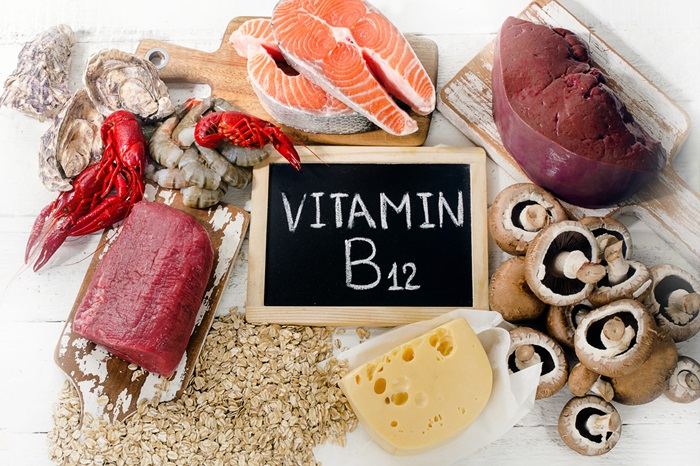Hair loss is a common concern that affects many people, and there are various factors that can contribute to this condition. One such factor is vitamin B12 deficiency. Vitamin B12 is essential for many bodily functions, including the production of red blood cells and maintaining healthy nerve cells. This article explores the relationship between low vitamin B12 levels and hair loss, examining how a deficiency might impact hair health and what can be done to address it.
Understanding Vitamin B12 and Its Role in the Body
Vitamin B12, also known as cobalamin, is a water-soluble vitamin that plays a crucial role in various bodily functions. It is essential for the production of red blood cells, which carry oxygen to tissues throughout the body. Adequate oxygen supply is vital for maintaining healthy hair follicles, which in turn supports hair growth.
Vitamin B12 also contributes to DNA synthesis and cell division. These processes are vital for the regeneration and repair of tissues, including those in the scalp. Additionally, B12 is involved in maintaining the health of nerve cells and supporting the central nervous system. A deficiency in this vitamin can lead to several health issues, including anemia, neurological problems, and potential hair loss.
How Vitamin B12 Deficiency Can Lead to Hair Loss
A deficiency in vitamin B12 can impact hair health in several ways:
Reduced Red Blood Cell Production: Vitamin B12 is critical for the production of red blood cells. A deficiency can lead to a decrease in the number of red blood cells, resulting in anemia. Anemia reduces the amount of oxygen delivered to the hair follicles, which can weaken the follicles and contribute to hair loss.
Impaired DNA Synthesis: Vitamin B12 is necessary for DNA synthesis. Hair growth involves rapid cell division and DNA replication. Without adequate B12, the hair growth cycle can be disrupted, leading to slower hair growth or increased shedding.
Neurological Effects: A lack of B12 can lead to neurological issues such as numbness and tingling. Although these symptoms primarily affect the extremities, they can indirectly influence hair health by affecting overall well-being and stress levels.
Scalp Health: Vitamin B12 deficiency can also impact the health of the scalp. An unhealthy scalp can contribute to hair loss by affecting the environment in which hair grows.
SEE ALSO: How to Stop Hair Loss from Lupus?
Symptoms of Vitamin B12 Deficiency
Vitamin B12 deficiency can present with a range of symptoms. Common signs include:
Fatigue and Weakness: Feeling unusually tired or weak can be a sign of anemia caused by B12 deficiency.
Pale or Jaundiced Skin: Anemia can cause the skin to appear pale or yellowish.
Shortness of Breath and Dizziness: Reduced red blood cell production can lead to shortness of breath and dizziness.
Numbness or Tingling: Neurological symptoms like numbness or tingling in the hands and feet can occur.
Difficulty Walking: Coordination problems and difficulty walking can be related to nerve damage from B12 deficiency.
Glossitis and Mouth Ulcers: Inflammation of the tongue and mouth ulcers can also be symptoms of B12 deficiency.
Diagnosing Vitamin B12 Deficiency
If you suspect that you have a vitamin B12 deficiency, it’s essential to consult a healthcare professional. Diagnosis typically involves:
Blood Tests: A blood test can measure levels of vitamin B12 and assess whether they are within the normal range.
Complete Blood Count (CBC): This test helps determine if anemia is present and whether it might be related to B12 deficiency.
Methylmalonic Acid (MMA) Test: Elevated levels of MMA can indicate a B12 deficiency, as B12 is needed to convert MMA to succinyl-CoA.
Homocysteine Levels: Increased homocysteine levels can also suggest a B12 deficiency.
Treating Vitamin B12 Deficiency
Treatment for vitamin B12 deficiency depends on the underlying cause and the severity of the deficiency:
Dietary Changes: Incorporating more B12-rich foods into your diet can help if the deficiency is due to inadequate dietary intake. Foods high in vitamin B12 include meat, fish, dairy products, and fortified cereals.
Supplementation: B12 supplements are available in various forms, including oral tablets, sublingual tablets, and injections. Your healthcare provider will recommend the appropriate form and dosage based on your needs.
Addressing Absorption Issues: For individuals with absorption problems, such as those with pernicious anemia or certain gastrointestinal conditions, B12 injections may be necessary to bypass the digestive tract and deliver the vitamin directly into the bloodstream.
Monitoring and Follow-Up: Regular follow-up with a healthcare provider is essential to monitor B12 levels and ensure that the treatment is effective.
Preventing Vitamin B12 Deficiency
To prevent vitamin B12 deficiency, consider the following:
Balanced Diet: Include a variety of B12-rich foods in your diet. Vegetarians and vegans should be especially mindful, as B12 is primarily found in animal products.
Fortified Foods: Choose fortified cereals and plant-based milk alternatives that have added B12.
Regular Health Check-ups: Routine blood tests can help detect deficiencies early, particularly for those at higher risk.
Other Causes of Hair Loss
While vitamin B12 deficiency can contribute to hair loss, it is essential to consider other potential causes:
Genetic Factors: Androgenetic alopecia (pattern baldness) is a common genetic condition that affects hair growth.
Hormonal Changes: Conditions such as thyroid disorders or hormonal imbalances can lead to hair loss.
Stress and Lifestyle: High stress levels and poor lifestyle choices can also impact hair health.
Nutritional Deficiencies: Other deficiencies, such as iron, zinc, or biotin, can also contribute to hair loss.
Conclusion
Vitamin B12 plays a vital role in maintaining healthy hair by supporting red blood cell production, DNA synthesis, and overall scalp health. A deficiency in this essential vitamin can contribute to hair loss through various mechanisms, including reduced oxygen delivery to hair follicles and impaired cell division. Diagnosing and treating vitamin B12 deficiency is crucial for addressing hair loss and overall health.
If you suspect a B12 deficiency, consult a healthcare professional for appropriate testing and treatment. Maintaining a balanced diet and monitoring your health can help prevent deficiencies and support healthy hair growth.

